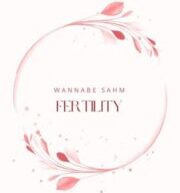
I never thought it would happen to me.
The moment I saw those two pink lines, I let myself dream—of tiny fingers gripping mine, of lullabies in the quiet of the night, of a love so deep it would change me forever.
And then, in an instant, it was gone.
After no signs that anything was wrong-
My first ultrasound at 10 weeks revealed my baby had no heartbeat.
No growth after 7 weeks.
It was a silent miscarriage, they told me.
Though I’ve since gone on to conceive and deliver my precious little girl, who I’m thankful for every moment with, that ache has never left my heart.
Losing a pregnancy is unlike any other grief. It’s invisible to the world, but inside, it’s all-consuming. If you’re reading this after your own loss, please know that I am so very sorry.
Now is the time to be selfish (it really isn’t selfish, btw! Others put themselves first all the time, so why shouldn’t you?) and take care of yourself. I also want you to know this:
💖 You are not alone.
💖 You did nothing wrong.
💖 Your body is not broken.
Miscarriage is a painful chapter, not the end of your story. And while nothing can erase the hurt, I want to share what helped me move forward—physically and emotionally—so that hope didn’t feel so far away.
Because hope is still yours to hold. 🌿✨
You Are Not Alone: The Reality of Miscarriage
One of the hardest parts of miscarriage is how lonely it can feel. I remember wondering, “Why does no one talk about this?” I had never even heard of a silent miscarriage!
But the truth is, miscarriage is incredibly common:
📌 1 in 4 pregnancies ends in miscarriage—yet we often suffer in silence.
📌 85% of women who miscarry once will go on to have a healthy pregnancy.
📌 Even after multiple miscarriages, 75% of women will conceive again.
Reading these statistics gave me something science-backed to cling to on the hardest days. Even when my mind questioned, “What if I never carry a baby?”—the numbers reminded me:
💡 My body is still capable.
💡 My dream is still possible.
💡 My story is still being written.
Why Miscarriages Happen (And What You Can Control)
After my miscarriage, I kept replaying everything in my mind. Was it something I ate? Did I work out too hard? Too much stress? Did I cause this?
If you’ve had these thoughts, please know that the answer is almost always NO.
Most miscarriages are caused by chromosomal abnormalities—not by something you did or didn’t do. The embryo simply couldn’t develop properly, and your body, heartbreakingly, let go – or in my case, needed medication to prompt it to.
Other possible causes of miscarriage include:
– Hormonal imbalances – Low progesterone or thyroid issues can make it harder for pregnancy to progress.
– Blood clotting disorders – Conditions like antiphospholipid syndrome (APS) can interfere with implantation.
– Underlying health conditions – Autoimmune diseases, uncontrolled diabetes, or chronic inflammation can increase risk.
– Uterine abnormalities – Fibroids or a thin uterine lining can make implantation difficult.
The good news? If one of these factors contributed to your miscarriage, there are steps you can take to support your body for the future.
Moving Forward After Miscarriage: What Helped Me Find Strength
1. Giving Myself Permission to Grieve
At first, I tried to be “strong.” I told myself, “It was early. Other women have had it worse.” But pushing grief away only made it heavier.
One day, I just let myself cry. I let myself feel it all—the sadness, the anger, the fear and longing. And slowly, I realized that grieving didn’t mean I was giving up hope.
💖 Things that helped me:
- Physically resolving the pregnancy – helping my body let go and heal
- Journaling letters to the baby I lost
- Talking to a therapist who specialized in pregnancy loss
- Allowing myself to say, “I lost a baby”—because that’s what it was
There’s no “right” way to grieve. Take all the time you need.
2. Supporting My Body Before Trying Again
Once I felt emotionally ready, I wanted to give my body its best chance for a healthy pregnancy.
Here are some of the supplements I discussed with my doctor (and why they mattered):
🌱 CoQ10 & Acai Berry – To improve egg quality and reduce oxidative stress.
🌱 Myo-Inositol – To balance hormones and support ovulation.
🌱 Vitamin D – Low levels are linked to miscarriage risk.
🌱 Magnesium & B6 – To support progesterone levels for a stronger uterine lining.
💡 Before trying again, I also asked for food intolerance, hormone & vitamin level testing to make sure my body was ready. My iron levels were low, so I also took this, combined with vitamin C for better absorption, as my doctor suggested.
I have a list of supplements I took to help me conceive naturally here.
3. Finding Hope in Trying Again
I was terrified to try again. The fear of losing another baby felt unbearable.
But then I read something that stuck with me:
📌 Research shows that conceiving within 6 months after miscarriage may actually increase the chance of a successful pregnancy.
That was the hope I needed. I wasn’t running out of time. My body wasn’t broken. I still had a chance.
So, I took small, hopeful steps:
✅ Tracked ovulation with basal body temperature (BBT) and OPKs
✅ Reduced inflammation with an anti-inflammatory diet & Omega-3s
✅ Advocated for myself—I asked my doctor about progesterone support
And then about 4 months later, I saw two pink lines again.
Was I still scared? Terrified!
But was I hopeful? More than ever.
A Message of Hope: Your Story Isn’t Over

💖 If you’ve had a miscarriage, know this:
🌸 You did nothing wrong.
🌸 Your body is still capable.
🌸 You are worthy of hope.
Your story doesn’t end here. Science, statistics, and millions of women before you prove that a healthy pregnancy after miscarriage is absolutely possible.
💡 You will carry life again. You will hold your baby. You are not alone.
Sending you love, light, and unwavering hope. 💕✨
Have you experienced miscarriage and found hope again? Share your story in the comments—because your voice might be exactly what another woman needs today.
